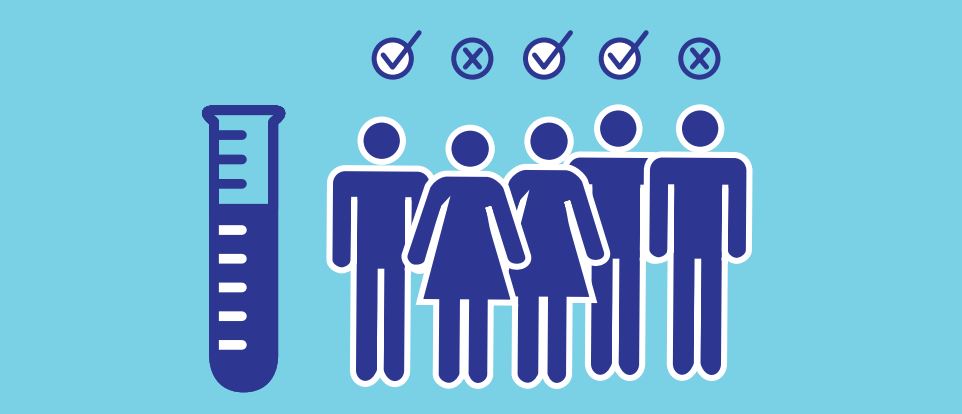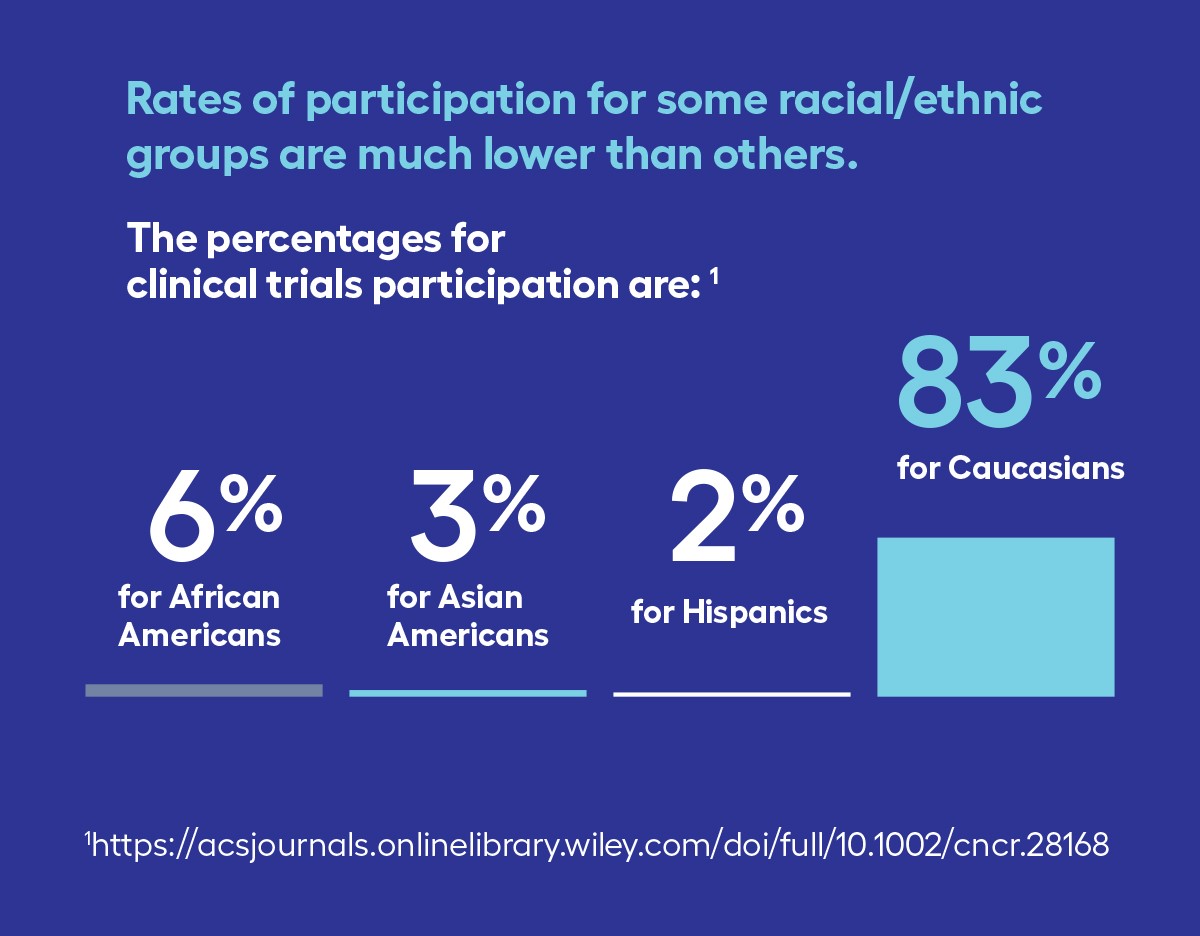
Clinical trials can help anyone—but did you know not all groups have equal representation?
A clinical trial is a research study involving people to determine the effectiveness of a new therapy, or combination of therapies. Clinical trials offer people with lung cancer treatment options that might not otherwise be available—plus they help advance research and treatment for others impacted. Given how valuable clinical trials are, you might be surprised to learn that only 8%1 of people with cancer participate in a clinical trial in the United States. That small number gets even smaller for Blacks (6%), Asian American (3%) and Hispanic (2%) populations2. This is a significant problem that can lead to a lack of understanding what the best treatments are for these groups.
Why does diversity matter in clinical trials?
 Treatments can work differently in people. It is important to understand how all people respond to them, so representation from all communities is important. We need to learn how new treatments work for people of any age, gender, race and ethnicity to better develop treatment options and potentially close gaps in healthcare disparities.
Treatments can work differently in people. It is important to understand how all people respond to them, so representation from all communities is important. We need to learn how new treatments work for people of any age, gender, race and ethnicity to better develop treatment options and potentially close gaps in healthcare disparities.
Racial and ethnic representation is especially important in lung cancer trials because it is the leading cause of cancer deaths in the United States. Representative participation has the potential to significantly improve cancer disparities3.
Building a foundation through education and trust
In 2021, GO2 for Lung Cancer partnered with the University of Alabama at Birmingham’s O’Neal Comprehensive Cancer (UAB) to improve clinical trial representation – focusing on Black people with lung cancer. We developed patient-friendly, accessible and culturally tailored reading materials about clinical trials that provided background information and FAQs, explained why representation matters, common myths about clinical trials and information on our LungMATCH treatment navigation program. The UAB team worked throughout the year to connect with and share these educational materials with patients through treatment clinics and community outreach. The efforts underscored the importance of making community connections and presenting information in ways that are most useful to the people you are trying to help rather than taking a “one size fits all” approach.
The next step: breaking down barriers with STRIDES
While education is one piece of the puzzle, there are many other factors that contribute to lower clinical trial participation rates among Black people with lung cancer. To help uncover additional barriers, GO2 for Lung Cancer has partnered with the Georgia Cancer Center at Augusta University, the O’Neal Comprehensive Cancer Center at the University of Alabama Birmingham and the Vanderbilt-Ingram Cancer Center on the STRIDES (Studying Trial Determinants of Success) project.
STRIDES’ focus is to develop a deeper understanding of the barriers and identify strategies to improve participation of Black people diagnosed with lung cancer in clinical trials across three unique areas in Alabama, Tennessee and Georgia. Researchers hope to identify both barriers to and drivers of research participation among these patients, then pilot evidence-based interventions designed to increase clinical trial participation of Black people with lung cancer in the local areas they serve.
Make sure you and your community are represented in lung cancer research studies that can lead to new treatments. Contact LungMATCH for free, one-on-one guidance about your treatment options including clinical trials. Call 800-298-2436 or email support@go2.org to get started.

Leave A Comment